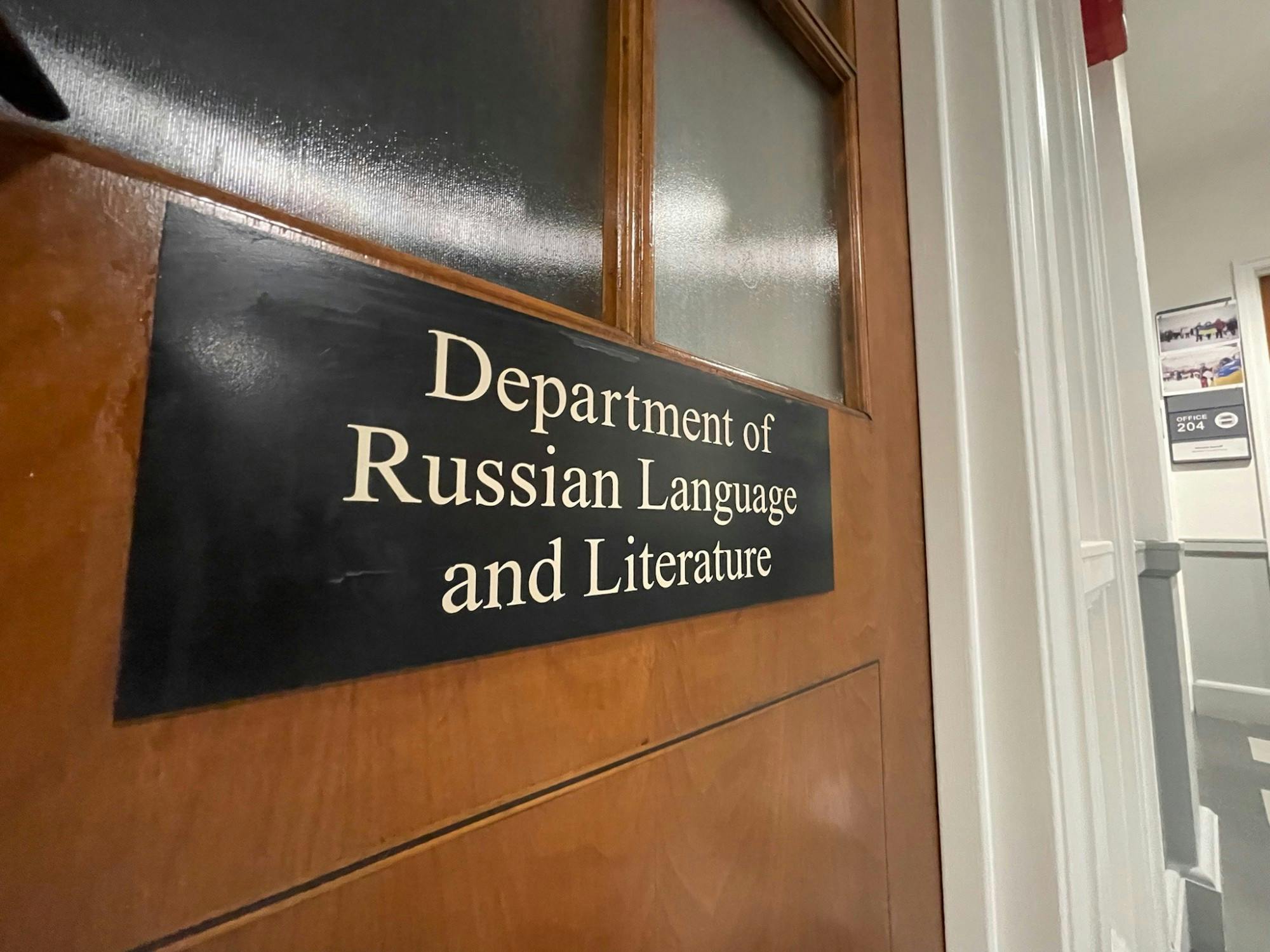More than 100 students and alumni have signed a petition in favor of restructuring Dartmouth’s Russian department into the Eastern European studies department, reflecting a trend from peer institutions such as Brown University, Harvard University, Columbia University, Yale University, Princeton University and the University of Pennsylvania that offer a diverse selection of courses about Eastern Europe.
The petition states that a departmental transformation would address issues related to a history of Russian imperialism and promotes proper nuance while studying Slavic and Central Asian cultures.
It also notes that the Russian department and the German department are the only two departments at Dartmouth to focus on one country rather than the broader regional context. Japanese and Chinese courses are combined within the Asian Societies, Cultures, and Languages programs; Arabic and Hebrew are combined within the Middle Eastern Studies department; French and Italian are combined within the Romance Languages department and Spanish and Portuguese are combined.
“The students of Dartmouth seek this change from a place of intellectual curiosity and excitement at the opportunity to learn more about a region of the world so critical to language, literature, art, geopolitics and history,” the petition states. “Students currently enrolled in the ‘Russian Area Studies’ major would rather graduate with the credentials to understand and interpret a broader region of the world.”
Eric Hryniewicz ’23, who was involved in creating the petition, said he sought signatories who had taken classes in the Russian department or expressed interest in taking other Eastern European classes to highlight just how many students stand to benefit from the change.
Russian professor Lynn Ellen Patyk said the department has been considering a name and curricula change for a couple of years, but the petition adds a new sense of momentum. She noted, however, that restructuring the department would require a lengthy administrative process.
“A name change and department restructuring isn’t just like hanging up a new sign,” Patyk said. “We would have to have a really well-planned proposal to present to the administration. It’s not like we can snap our fingers and say, ‘Bags of money here. Change our program the way we want.’ We actually need the resources to do that.”
Patyk stated that the requisite approval committees do not meet during the summer, making the petition’s call for the change by fall of 2022 an overly “ambitious” goal. According to Patyk, a change now might also be seen solely as a political decision in the Russian-Ukrainian context, rather than a change stemming from years of deliberations.
Sophia Rubens ’24, a signatory of the petition, said she believes that the war may have prompted the petition, but that students and faculty had long been thinking about these issues and how to address them.
“The tragedy made this issue rise to prominence maybe faster than it would have,” Rubens said. “…The sentiments were brewing, but perhaps the outbreak of the war was yet another instance that galvanized people’s thinking in that direction.”
Rubens said that Russia’s decades-long past of violent imperialism should not be conflated with the wider Slavic sphere’s cultural output and literary traditions.
“Some students might hear ‘Russian’ and have a certain set of preconceptions about whether it’s the language, the culture … and they might be attracted to it or disinterested because of those associations,” Rubens said. “…Calling it Slavic studies or something to that effect would encourage people to think more broadly.”
Hryniewicz noted that had he attended another school like Harvard, he would have majored in Slavic studies or something similar and concentrated in Polish. At Dartmouth, he is studying Russian because it is all that is available. This coming year, he plans to take Ukrainian classes through a tutor but said he wishes the department offered the class.
“The Russian department has struggled to recruit people for a long time,” Hryniewicz said. “I think [it] stands to gain a lot in terms of students taking classes.”
However, Patyk said she does not think Dartmouth could sustain other Eastern European language classes because it lacks graduate students, unlike its Ivy League counterparts. She said she is in contact with Vassar College, Bowdoin College, Amherst College and other smaller schools — all of which have strictly Russian departments — to see how they are handling the situation.



